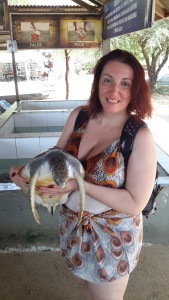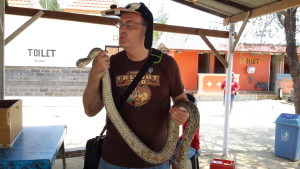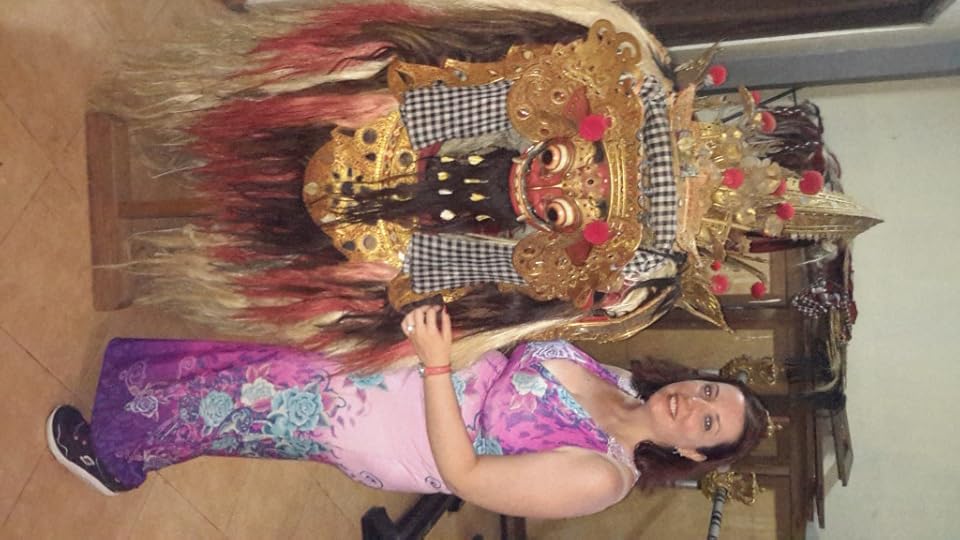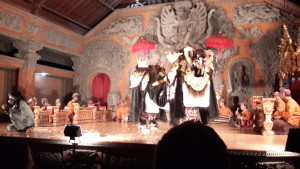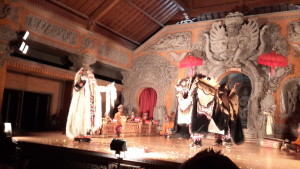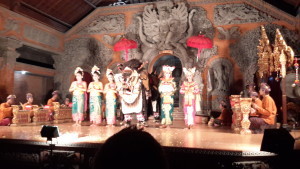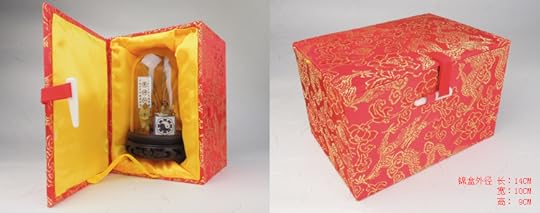Amanda Roberts's Blog, page 16
December 22, 2015
Book Review – The Red Princess Mysteries by Lisa See
I read a lot of historical mystery books, but I got really tired of the same protagonist – a white widow of means. So when looking for a mystery with a non-white heroine, I came across Lisa See’s Red Princess Mysteries. While it isn’t exactly a historical series, the Red Princess Mysteries is a solid trilogy with a much more interesting setting than most mysteries on the market today. Don’t forget to read my interview with Lisa See about this series here.
About The Red Princess Mysteries:
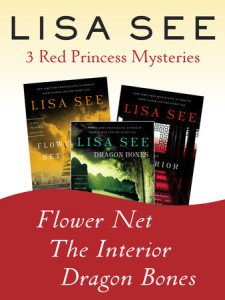 The bestselling Red Princess thrillers aren’t just riveting crime stories; they’re novels of emotional depth and savvy insight into modern China. At the heart of Lisa See’s dynamic, suspenseful trilogy is the relationship between detective Liu Hulan and American attorney David Stark, two characters caught in the crush of international affairs.
The bestselling Red Princess thrillers aren’t just riveting crime stories; they’re novels of emotional depth and savvy insight into modern China. At the heart of Lisa See’s dynamic, suspenseful trilogy is the relationship between detective Liu Hulan and American attorney David Stark, two characters caught in the crush of international affairs.
FLOWER NET
In the waning days of Deng Xiaoping’s reign, the U.S. ambassador’s son is found entombed in a frozen lake. Off the coast of California, Assistant U.S. Attorney David Stark discovers the corpse of a Red Prince, a scion of China’s political elite. With the Chinese and American governments joining forces to see justice done, David teams up with unorthodox police detective Liu Hulan in Beijing. As their investigation sparks an intense connection, David and Hulan uncover a web linking human trafficking to the drug trade and to governmental treachery—a web reaching from the Forbidden City to Los Angeles and, like the wide flower net used by Chinese fishermen, threatening to ensnare all within its reach.
THE INTERIOR
As David Stark opens a law office in Beijing, Liu Hulan receives an urgent message imploring her to investigate the death of an old friend’s daughter, who worked for a toy company about to be sold to a new client of David’s. Despite his protests, Hulan goes undercover at the toy factory in a rural village deep in the heart of China, a place that forces her to face a past she has long been running from. Suddenly Hulan and David find themselves on opposing sides: one trying to expose a rogue company, the other bound to protect his client. As pressures mount, they uncover universal truths about good and evil, right and wrong—and the sometimes subtle lines that distinguish them.
DRAGON BONES
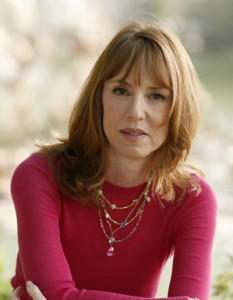
Author Lisa See
Liu Hulan and David Stark are traveling to one of the most beautiful places on earth: the Three Gorges, where China’s biggest engineering project since the Great Wall is taking place. Hulan is there to investigate the death of an American archaeologist found in the Yangzi River; David is trying to figure out who’s stealing artifacts and selling them on the international art market. Haunting the investigation is the possibility that an artifact has been found that could very well alter the history of civilization. Together, David and Hulan unearth more scandals and revive tragic memories as they struggle to solve a mystery as big, unruly, and complex as China itself.
My Review
I really enjoyed these books. I read through all three of them fairly quickly. The mysteries are interesting and there are lots of twists and turns. There is also a lot of Chinese history and culture packed in. Even though these books are not “historical,” the first one was published in 2007, almost 18 years ago, so it is a great picture of China at that time. It is interesting to see the differences between China then and now, and almost frightening to see just how little has changed. I think the second book in the trilogy was the weakest mystery-wise (why anyone, especially Hulan, cares about the factory girls is never really clear. I mean, honestly, the “deplorable” conditions at the factory sounded better than the conditions at my daughter’s university today), but the character development is essential to the overall story and has significant impact on the trilogy’s conclusion.
If you are looking for an interesting China-based mystery series, definitely check out Lisa See’s Red Princess Mysteries.
Have you read The Red Princess Mysteries? What did you think of them> Let me know in the comments.
Don’t forget to enter this month’s drawing! Learn about this month’s prize, Beijing Monkeys, here!
December 21, 2015
Book Review – Buy Me The Sky by Xinran
I am a big fan of Xinran’s books. It is still difficult to find female Chinese writers writing about women’s issues in China in English. While more Chinese women are taking up the pen regarding these issues, Xinran was one of the first. She was in China collecting women’s stories when many people in China thought those stories weren’t important. Her books The Good Women of China and Letters From an Unknown Chinese Mother were groundbreaking in their time. This time, Xinran has widened her scope and looks at the first generation of young men and women raised under the One-Child Policy in her new book Buy Me The Sky. Be sure to read my interview with her about this book here.
About Buy Me The Sky
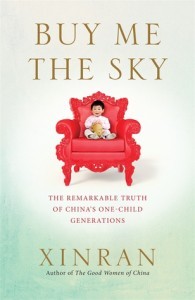 With journalistic acumen and a novelist’s flair, Xinran tells the remarkable stories of men and women born in China after 1979 – the recent generations raised under China’s single-child policy. At a time when the country continues to transform at the speed of light, these generations of precious ‘one and onlies’ are burdened with expectation, yet have often been brought up without any sense of responsibility. Within their families, they are revered as ‘little emperors’ and ‘suns’, although such cosseting can come at a high price: isolation, confusion and an inability to deal with life’s challenges.
With journalistic acumen and a novelist’s flair, Xinran tells the remarkable stories of men and women born in China after 1979 – the recent generations raised under China’s single-child policy. At a time when the country continues to transform at the speed of light, these generations of precious ‘one and onlies’ are burdened with expectation, yet have often been brought up without any sense of responsibility. Within their families, they are revered as ‘little emperors’ and ‘suns’, although such cosseting can come at a high price: isolation, confusion and an inability to deal with life’s challenges.
From the businessman’s son unable to pack his own suitcase, to the PhD student who pulled herself out of extreme rural poverty, Xinran shows how these generations embody the hopes and fears of a great nation at a time of unprecedented change. It is a time of fragmentation, heart-breaking and inspiring in equal measure, in which capitalism vies with communism, the city with the countryside and Western opportunity with Eastern tradition. Through the fascinating stories of these only children, we catch a startling glimpse of the emerging face of China.
My Review
While many theorists, psychologists, moralists, and even economists have all weighed in on what the outcome would be for China’s only children generations, we had to wait for those first only children to grow up before they could tell their own stories and begin to piece together the real emotional impact of what it means to be, not just an only child, but a country of only children. Xinran finds a group of these young people, mostly through casual acquaintance, and tells their stories.
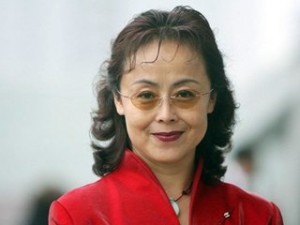
Author Xinran
Unfortunately, I think the stories are very limited. 9 of the 10 chapters (the 9 people who get a whole chapter to themselves) are students she met who were living abroad. That means these are all rather affluent people. There are some variations in their stories, one girl was a waitress and one young man was from the countryside and borrowed money from his extended family to leave China, but the type of person who has the opportunity to go abroad is very different from someone who cannot afford to school, or was a “left behind” child, or was denied a hukou. I think that chapter 10 was the strongest because it focused on all of those other ones, the ones she met in China. They are all lumped together though and I would have liked to have seen more variety throughout all of her interviewees.
Of course, no two people are alike. Even if she had 20 interviews in the book and had met Chinese youths from all over the world, in and out of China, the stories would not have been representative. How do you write a book about millions of people? It is impossible. This book at least offers a glimpse of what life was like for those kids. Hopefully this will be just a jumping off point for more writers, researchers, and the youths themselves to tell their stories.
This book is a good introduction to the One-Child Policy and what life was like for that first generation growing up under it.
Have you read Buy Me The Sky? What did you think? Let me know in the comments.
Don’t forget to enter this month’s drawing! Learn about this month’s prize, Beijing Monkeys, here!
December 14, 2015
Interview with Xinran, the Author of Buy Me The Sky

Author Xinran
Most readers of this blog know that I am a huge fan of the author Xinran. I reviewed her book “The Good Women of China” here and wrote about her book “Letters From an Unknown Chinese Mother” here. Her lat est book “ Buy Me The Sky: The remarkable truth of China’s one-child generations ” talks about the children who have grown up u nder China’s one-child policy, something else I have written about quite a bit.
I am so honored that Xinran agreed to talk with me about her new book!
1) Tell me about yourself.
I am…
A Chinese daughter, but doesn’t know very much about her parents’ life because of China’s political past which her parents never wanted to talk about it between 1950’s to 1970’s.
A Chinese mother, but doesn’t know much about her only child, because he grows up between Chinese culture and western culture, in his bilingual languages and screened knowledge.
A British husband’s wife, but doesn’t know much about her husband’s culture and adopted western society because her limited English and world knowledge.
A Chinese woman, but doesn’t know much about her roots country because China has changed so fast in last 30 years, there is no so such a historical record/lesson to learn from it.
A Chinese writer, but is still struggling to understand why the history is so unfair to women, and is trying hard to get Chinese hidden voices out.
2) How did you become a writer?
Driven by a childhood dream, grow up with a passion and everyday hard trying of listening, observation, and thinking.
3) How did you come to write Buy Me the Sky?
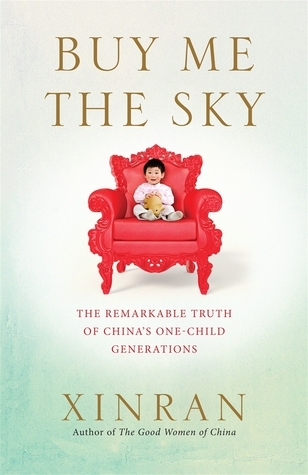 During over thirty years research on today’s China, I have shocked by some facts which have happened to the most families under One Child Policy, therefore I want to find the answers to these questions and to send an invitation out for people could listen to their answers:
During over thirty years research on today’s China, I have shocked by some facts which have happened to the most families under One Child Policy, therefore I want to find the answers to these questions and to send an invitation out for people could listen to their answers:— ‘Is the mother keeping her child as a pet, or is the child keeping her parents as slaves, to be at her beck and call with every wave of her hand?!
— Is One Child Policy much more powerful than any kind of the beliefs rooted in culture, religion, education, and living environments?
— They all belong to the first generation of the One Child Policy, they have completely different views on China, the world, and the concept of a quality life because of their family backgrounds, living conditions, and their pursuit of different ideals. But is there any point they could agree with their family elders after their long march under One Child Policy?
4) At the end of each story, you ask the young people you talked to about the Yao Jiaxin incident. Why did you feel it was important to get their views on that?
Yes, it could help readers to understand there is no such a Chinese and single China there, young Chinese have very different knowledge and views on Yao’s case because the difference of their living condition and family backgrounds, also between rich and poor, city and countryside, and even between 5 years age!
5) Why do you think only-children in China are so different from only-children born in other countries?
A child lives in an adult society must be completely different from a child lives in a society with many other children…
Or we say, English lives in Beijing, in a Chinese Hotong, must feel very different from she/he lives in a building which is full of English speakers…
Childhood society/family culture is the first education/brainwash in our life!
6) What do you think of China’s new two-child policy? Do you think it will effect much change in the short or long term?
One Child Policy, as anything, likes a coin with two sides, (in fact it should be three sides):
In the last three decades, under the One Child Policy, China has prevented 400 million people from coming into this world, buying FOUR years for the world population to reach 6 billion. In this point, One Child Policy is a gift to the earth by its birth control, saving energy, giving more space to all of life being. AND China had got a chance to recover from nearly one hundred years civil war, from a very poor country to today’s big rich country.
But, China has paid high price for it. This policy has led Chinese families jumped a history queue, BEFORE Chinese could have had a time to build up a ‘ready knowledge and support system’ for the one child society, as I have mentioned in my article sent to you:
According to China’s sixth census in Oct 2014, by 2020 there will be 30 million more males than females among the age group of 20 to 45 year olds in China. More than 150,000 Western families have adopted Chinese orphans, mainly girls, since 1991. And also, the most important part of Chinese tradition is our family value which has rooted and shaped Chinese culture and society, but it has been damaged by single children society. Chinese become confused by its social disorders, its rule-less family structure, and polluted by some western celebrity culture, and even drugged sexual behaviours without enough education and any learning process.
I hope ‘two children policy’ is not too late.
I wish more and more hard working young parents could realise that their beloved only child won’t have a real sharing and quality life by lives by her/his own, because money can’t buy a happy family and peaceful sleep!
It might take more two generations for Chinese to realise how much Chinese tradition and society have been damaged by this policy.
7) What are you working on next?
I am working on my new book ‘Talking Love’ a family dating history through its four generations.
8) Is there anything else you would like to share with readers?
Great thanks for this question with your cares!
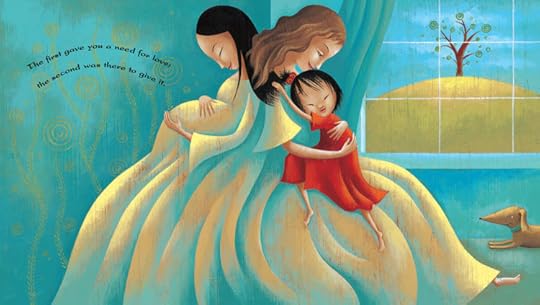 I set up a charity called The Mothers’ Bridge of Love (MBL) (UK registration number 1105543) with a group of volunteers in 2004. MBL’s aim is to provide Chinese cultural support to children in all corners of the world, by creating a bridge of understanding between China and the West, and between birth and adoptive cultures, and helping education in rural China.
I set up a charity called The Mothers’ Bridge of Love (MBL) (UK registration number 1105543) with a group of volunteers in 2004. MBL’s aim is to provide Chinese cultural support to children in all corners of the world, by creating a bridge of understanding between China and the West, and between birth and adoptive cultures, and helping education in rural China. After ten years MBL’s achievements of assistance, advice and educational activities to adoptive families around the world, supporting a number of disaster relief and built 15 libraries for some migrant workers’ children, and children living in rural countryside in China, now MBL invites my readers and families from all over the world to support MBL for giving more children with reading possibility in rural China.
You can read all of my author interviews here.
Don’t forget to enter our monthly giveaway! You can learn more about this month’s prize here.

December 7, 2015
Two Americans in China in Bali
This year, for the one week national holiday, Seth and I went to Bali, Indonesia. While we didn’t get to stay as long as we wanted and didn’t see nearly all the island has to offer, we had a great time and would love to go back.
We mainly stayed in Ubud. Ubud is in the center of the island, surrounded by jungles and nestled deep in Indonesian culture. The area is not nearly as developed as other parts of the island, which is just the way I like it. Ancient temples and traditional craftspersons are everywhere.
The first thing you need to know about Bali is that the airport is crazy! It was so much worse than any airport I have been in in China. The taxi drivers are very aggressive and will massively gouge you on rates. If you are going to Bali, make sure you book a hotel that provides an airport shuttle so you can get to your hotel safely and at a good rate. Taxis in general, though, are expensive compared to how cheap everything else on the island is.
The first thing we did was go to Monkey Forest. The forest delivers what it promises. There were monkeys everywhere! They are used to being fed by humans, so they will jump on you and take food from you (or you water bottle, or earrings, or Disney pins, or anything else they can grab) with no fear. The monkeys are free range and could leave the walled area if they wanted to, but they generally don’t because of the food. The forest isn’t very big, though, so it is a cheap, fun way to spend half a day.
The next day we went for some water fun! Bali is an island, so it is famous for its beaches and water sports. We did this really cool thing called a sea walk where you walk along the bottom of the ocean and wear a big dive helmet. It is great for people who wear glasses and can’t wear regular goggles or have problems using snorkles. We also did some snorking and a glass bottom boat ride, but those kind of sucked in comparison after the sea walk. If I ever go back, I really want to try some proper scuba diving.
After that we went to Sea Turtle Island. This made me a little uncomfortable. I mean, sea turtles don’t live on islands. After they are born, they go to the ocean and most never return. Male sea turtles never return to the land and females only return to lay eggs. The people running the island claimed they were all about sea turtle education and preservation, but it still made me feel squicky. I wouldn’t do it again. But they were super cute. We also got to hold a python, a toucan, and a big bat. So that was cool.
After that, we pretty much hung around the Ubud area, which is gorgeous. We did lots of shopping and eating! We also discovered my new favorite thing: the barong!
The barong is similar to the lion dancers we have here in China. The Barong is a lion-type of creature that is the King of Spirits and the Host of Good. We went to see a traditional Balinese dance/opera show that featured the barong, and it was so cool. If you ever go to Bali, there are dance troops putting on shows every night all over town. If you ever go, make sure you choose one that features the barong!
Bali really has a lot more to offer than we experienced. I hope to go back some day!
Have you been to Bali? What did you think? Let me know in the comments.
Don’t forget to enter our December Giveaway!
a Rafflecopter giveaway
December 1, 2015
December Giveaway! Beijing Monkeys!
Congratulations to BlueCat731, our November winner! BlueCat will recieve a digital copy of The Crazy Dumplings Cookbook!
Since December is a special month for most people, I have decided to give away a physical item this month – a little diorama of Beijing Monkeys eating dumplings for Chinese New Year!
Beijing Monkeys (Beijing Maohou, also called Hairy Monkeys) are a traditional Chinese handicraft that dates back hundreds of years, but they are extremely rare today. I came across an elderly man selling them at the ICIF this spring and I just fell in love with the quirky little critters. The Beijing Monkeys are actually made up of magnolia buds and locust skins that are artfully arranged to look like…well, not really monkeys, but people going about their lives! I’ve seen dozens of Beijing Monkey designs and have some sitting on my desk at work. But here at Two Americans in China, you know I LOVE DUMPLINGS! So I thought giving away a scene featuring dumplings would be appropriate. The monkeys are staged in a transparent resin vial. The wooden base diameter is 7.5 cm. Total height is 12 cm. The monkeys will ship in a padded gift box.
Any one in the world is eligible to enter this giveaway! The item will be shipped in January 2016, but you must provide a valid shipping address if you win to receive your monkeys.
What do you think of this month’s prize? Let me know in the comments!
November 23, 2015
Interview With Lisa See, Author of The Red Princess Mysteries
Lisa See is best known for her historical novels, especially Snow Flower and the Secret Fan , which I reviewed here. But she also wrote a fabulous mystery series back in 1997. I recently read all three of the Red Princess mystery books and really enjoyed them. Lisa was kind enough to answer a few questions I had about the series. Check out my interview and enter for a chance to win all three Red Princess mystery books at the end!

Author Lisa See
1) Tell me a little about yourself.
I was born in Paris but grew up in Los Angeles. I’m part Chinese. My great-great-grandfather came here to work on the building of the transcontinental railroad. My great-grandfather was the godfather/patriarch of Los Angeles Chinatown. I don’t look at all Chinese, but I grew up in a very large Chinese-American family. I have hundreds of relatives in Los Angeles, of which there are only about a dozen who look like me.
I go for walks and play tennis. I love movies, and I used to see about 100 a year. But frankly, I don’t have much free time these days. I’m a L.A. City Commissioner. I also curate the occasional museum exhibition and do tons of speaking events each year. I’m also a freak when it comes to letter writing. I write lots of letters, and I think I’m pretty good at answering my e-mail in a timely way. My days are extraordinarily full with all sorts of things. These days, I have to say no more than I’d like so I can write.
2) Tell me a little about your writing history.
In one way, I was extremely fortunate with my first book. In another way, I’d already worked a very long time as a writer. To backtrack… I had worked as a journalist for many years and had been the West Coast correspondent for Publishers Weekly for about eight years when I started On Gold Mountain. Like I said, I’d already been working a long time as a professional writer, so people in publishing knew me and my work. (They may not have known me personally, but they read me almost every week and knew, among other things, that I could meet a deadline.) I also benefited from the success of Amy Tan’s The Joy Luck Club. Publishers were actively looking for more Chinese-American stories. Amy’s agent was Sandy Dijkstra. Sandy has a great American art collection, and she helped me with some of the art sources for On Gold Mountain. After two years of work—doing interviews, traveling back to the home village in China, searching out what I could find in archives, and then writing the proposal—I thought that Sandy would be the perfect person to sell the idea. There was an auction—a miracle as far as I was concerned. So, hard work, timing, and good luck.
3) You published the first Red Princess mystery, The Flower Net, in 1997. Can you tell me how the series came about and what publishing it was like?
 My husband is an attorney and he represented the country of China back when most commercial ventures were owned by the government. He had a case that resulted in our spending an evening in a very swanky karaoke bar in Beijing in the middle of winter. This was back in something like 1994, so China was very, very different than it is today. Anyway, we were with all these agents from the Ministry of Public Security—China’s version of the FBI. Now there’s one thing you can say about people in law enforcement: they basically all look alike, no matter where you go in the world. They have a particular build, they carry weapons, they wear black leather jackets, they have their tough-guy attitudes. But these guys also had something else. They were covered in gold: big gold Rolexes, big gold rings, big gold necklaces and bracelets, because they were corrupt but they were up front about it. They were getting up to sing sappy love songs in these gorgeous tenor voices, with the tears streaming down their faces. If you’re a writer and you get to experience something like that, there’s only one thing you can think: This is the best material and I’ve got it!
My husband is an attorney and he represented the country of China back when most commercial ventures were owned by the government. He had a case that resulted in our spending an evening in a very swanky karaoke bar in Beijing in the middle of winter. This was back in something like 1994, so China was very, very different than it is today. Anyway, we were with all these agents from the Ministry of Public Security—China’s version of the FBI. Now there’s one thing you can say about people in law enforcement: they basically all look alike, no matter where you go in the world. They have a particular build, they carry weapons, they wear black leather jackets, they have their tough-guy attitudes. But these guys also had something else. They were covered in gold: big gold Rolexes, big gold rings, big gold necklaces and bracelets, because they were corrupt but they were up front about it. They were getting up to sing sappy love songs in these gorgeous tenor voices, with the tears streaming down their faces. If you’re a writer and you get to experience something like that, there’s only one thing you can think: This is the best material and I’ve got it!
4) Did you always plan for Red Princess to be a series or was that decided later?
I always thought of it as a trilogy. While I didn’t know what the next two “mysteries” would be when I first started writing the series, I knew what I wanted as an emotional arc for David and Hulan.
5) You once described Flower Net as a snapshot of China in the late 1990s, but I was surprised by how contemporary the books still feel. For example, the descriptions of the factories in The Interior still seem to apply today. Do you think China has changed much since the last book was published in 2003?
Yes and no. You’re absolutely right about the factories. I feel like I was way out front on that subject – long before revelations about Nike or Apple, long before the publication of Factory Girls, which is a fabulous non-fiction book on the subject. I’m very proud of the fact that The Interior helped to lay the groundwork for some of the journalism that followed.
But in other ways China is completely different. When I was first going to China, there were still very few cars. The last time I was in Beijing, it felt like it was all cars and very few bicycles. And just the physical changes that occurred in the lead up to the Olympics and all the way to today! When I first went to China, they had Pizza Hut, which did very poorly back then, because no one liked all the cheese, and no McDonald’s or Starbucks.
The societal and economic changes are also tremendous, especially in the big cities. The money—the sheer number of millionaires and billionaires—well, they just didn’t exist in the early 90’s. Even more striking, at least to me anyway, is the younger generation. If you’re 25 or younger, you personally don’t have memories of the Great Leap Forward, the Cultural Revolution, or the events at Tiananmen Square. You may have heard stories of hardship, but that’s not your day-to-day reality nor does it affect your outlook about whether your future is tenuous or secure.
Lastly, I’d say media—television in particular—has really changed how people look at the outside world, their aspirations, and their sense of what they might be entitled to. While small, isolated, and poor villages may not have Starbucks or experience the economic benefits of being the second largest economy on the world, they do now have electricity and televisions. Even if they only have access to state-run channels, they still see how people dress in the cities, get glimpses of the rest of the world,
and, rather dismayingly, see commercials that are Western in style or content.
But going back to my comment about the mysteries feeling like snapshots… Each one is very specifically tied to that particular year. For example, the day the manuscript for Flower Net went to press, I had lunch with some writers here in Los Angeles. It was quite celebratory, because everything was done—all the writing, editing, and copy-editing. I said, “The only thing that could cause a problem now is if Deng Xian-ping dies.” When I got home, the phone was ringing. It was someone from the lunch, who said, “You’d better turn on the TV. Deng Xiao-ping just died.” We had to pull the book from the printer. And as you know, I added a scene that includes Deng’s funeral.
6) How did you learn so much about the inner workings of the Chinese Ministry of Public Security and other official agencies?
As I mentioned above, my husband is an attorney and he had one particular case in which he worked with the MPS. It was the first time—and to this day the only time—that the FBI and Ministry of Public Security worked together. (The FBI has worked with other Chinese ministries since then, and I’m sure that the MPS has worked with other U.S. agencies since then too.) I met many of the people who worked for the MPS. I asked lots of questions. For example: If you were going to dispose of a dead body in Beijing, how would you do it? (I’ve always found that people in law enforcement – all around the world, including here in the U.S. — think a lot about how they would commit a crime so as not to be caught. That’s part of how they catch the criminals! My husband was also having meetings inside the MPS and a prison. He could tell me details about the lack of heat, the type of flooring, and what people wore.
7) After Dragon Bones, you switched to historical novels. Why the change? What are the differences between writing a contemporary mystery or a historical novel?
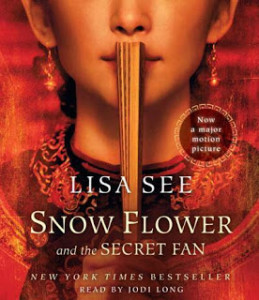 I first heard about nu shu—the women’s secret writing—in 1999 when I reviewed a book for the Los Angeles Times on the history of footbinding. It was just a short three or four page mention, but I thought, how could this exist and I didn’t know about it? I looked nu shu up on the Internet. At the time there wasn’t much about nu shu out there. (Now there’s quite a bit.) It took me a long time before I realized I would write a novel based on nu shu. I read all this academic stuff written by scholars and I went to southwestern Hunan province to learn what I could. What I discovered was that the scholars—as brilliant as they are—always seemed to leave out the emotions inherent in the secret language. It was something used by real women who had real emotions. I thought a novel would be the best way to explore that.
I first heard about nu shu—the women’s secret writing—in 1999 when I reviewed a book for the Los Angeles Times on the history of footbinding. It was just a short three or four page mention, but I thought, how could this exist and I didn’t know about it? I looked nu shu up on the Internet. At the time there wasn’t much about nu shu out there. (Now there’s quite a bit.) It took me a long time before I realized I would write a novel based on nu shu. I read all this academic stuff written by scholars and I went to southwestern Hunan province to learn what I could. What I discovered was that the scholars—as brilliant as they are—always seemed to leave out the emotions inherent in the secret language. It was something used by real women who had real emotions. I thought a novel would be the best way to explore that.
To answer your second question, writing straight fiction is much easier than writing mysteries or thrillers. Writing the mysteries helped me tremendously with Snow Flower. With mysteries, you have to keep focused on the plot. You can’t overlook a single detail. It’s a very tight form and pacing is extremely important. Today, straight fiction, especially women’s fiction, has very little plot. It’s just a slice of life with an emotional change. I personally prefer novels that have enough plot that I’m anxious to turn the pages. For Snow Flower, the plotline was why does Lily feel such regret, and what happened between her and Snow Flower to create their rift? You see, it’s still a mystery. I had to place clues about Snow Flower’s upbringing, about the hardships of her life, and what the secret message on the fan actually meant throughout the novel for it to work. Writing the mysteries has helped me with the pacing, characters, and emotional arcs of all the novels that have come since. Really, if you look at all my novels, you’ll find secrets that need to be revealed.
8) Do you think you will ever return to mystery writing?
Right now I don’t have any plans to continue with them, but that doesn’t mean I won’t one of these days. Poor David and Hulan have been through so much. I like to think that they’re on vacation somewhere, sitting by the ocean, under a palm tree, sipping drinks with those little umbrellas in them. Those two deserve a break! But one day they’ll be called back to work.
9) What are you working on now?
I’m currently working on a new novel called The Tea Girl of Hummingbird Lane, which has three main elements: the mother/daughter relationship, the history of tea (with an emphasis on Pu’er), and the Akha ethnic minority of Yunnan. For the mother/daughter story, I want to write about a woman who gives up her baby for adoption in China, the woman in California who adopts her, and the girl herself.
Lisa See, thank you so much for chatting with me!
November 19, 2015
Dozens of SZ Expats Swindled in United Airlines Flight Scam
The following was originally published in the Shenzhen Daily. I have added a little more information for clarity and an analysis to the end.

Cansu Uzcan, from her Facebook page.
DOZENS of expats in Shenzhen have been swindled out of tens of thousands of yuan in a United Airlines fraud case allegedly perpetuated by a well-known Shenzhen international student, an investigation by the Shenzhen Daily has discovered.
“My mother was stranded in Rome,” said one victim named Rose. “We had to pay thousands of dollars to get her back home to the United States.”
People interviewed for this article asked not to be identified by their full names.
The person accused of the scam, Cansu Uzcan (also known as Jansu Uzcan), is attending Shenzhen University and allegedly used a stolen credit card to purchase flights while selling the flights to Shenzhen expats at discounted rates. Victims deposited cash into Chinese bank accounts under Uzcan’s name or the name of her boyfriend Sean Champion.
Some of the people Uzcan approached were cautious initially, but after booking the flights through Uzcan, United Airlines emailed the victims directly to confirm the flights. Some were even able to apply the flights to their United Airlines Mileage accounts. After several people successfully completed flights booked through Uzcan, the number of expats purchasing discounted flights through her grew quickly.
But on September 2 people noticed that their flights were being canceled by United Airlines.
Some who were halfway through their trips were told by United Airlines that they had to pay for the full cost of their flight – often double or triple the amount of money they paid Uzcan – in order to return home.
Some travelers arrived at the airport before finding out their flight had already been canceled. “I was told I would have to pay over US$3,000 to take my flight,” Seth said. “I only paid US$500 for it in the first place.”
At least two dozen people contacted Uzcan through WeChat and email to find out what happened. At first, she said that United’s system had been hacked and she returned some of the money, according to the victims.

Sean Champion, Uzcan’s boyfriend and partner in crime, from his Facebook page.
By the end of September, she began blocking the WeChat accounts of people who had booked flights through her.
United Airlines has since started contacting people who completed flights or attached their United Airline Mileage accounts to flights that weren’t taken. According to letters from United Airlines sent to the victims, the people who booked flights through Uzcan violated the airlines terms of service because Uzcan was using a stolen credit card to book the flights.
United Airlines said the victims are liable for flights they took because United was never paid for the flights by the credit card company. United Airlines has also nullified all the mileage accounts connected with the scam.
“I lost over 100,000 miles I had saved,” another victim named Ariyana said. “United Airlines is saying that I owe them thousands of dollars. The stress has been unimaginable. I had to hire a lawyer. I don’t know when I’ll be able to recover financially. I won’t be able to go home for Christmas this year.”
“United Airlines has been terrible to all of us,” Rose continued. “They are treating us like criminals.”
“United Airlines allowed this apparently fraudulent card to be used for months but are now blaming us for their lack of oversight and responsibility,” said a victim named Jayton.
Several of the fraud victims have reached out to law enforcement officers in China, the U.S. and Canada. While all three countries are investigating the case, they claim there is little they can do. “Most of the transactions were conducted through WeChat,” a Canadian police officer said. “Anyone could have been behind the screen.”
Investigations are ongoing.
~*~
Many people have asked how this could happen. How could so many expats be convinced to deposit their money into someone else’s bank account so easily?
The expat community is small. Even though there are thousands of expats in Shenzhen alone, we are all connected. Everyone knows everyone else through someone. We are all also very Internet savvy and keep in touch with each other. Many times, we feel we are “in this together.” Living overseas is not easy, so we are always trying to help each other. Giving each other tips and tricks to make life easier and save money is extremely common.
 When Cansu said she could help fellow expats save money through booking flights, we believed her. She is also very well-known. Many expats vouched for her because they know her through Shenzhen University. I actually met her several months before when she organized an event as part of the International Cultural Industries Fair.
When Cansu said she could help fellow expats save money through booking flights, we believed her. She is also very well-known. Many expats vouched for her because they know her through Shenzhen University. I actually met her several months before when she organized an event as part of the International Cultural Industries Fair.
We didn’t have a reason not to trust her.
At least for me, I didn’t lose that much (about US$500). I chalk it up to a learning experience. But some of the people I quoted in the article and many others lost a lot more money and are facing legal issues with United Airlines.
At this point, even if nothing legal can happen to Cansu Uzcan, United Airlines needs to stop treating the victims of her scam as criminals. She took advantage of the trust and community expats in Shenzhen have built, but United is continuing to ruin lives by re-victimizing the people Cansu took advantage of.
United Airlines needs to reinstate the mileage accounts of the victims at least – at most they need to refund the people who were swindled by Cansu Uzcan.
What do you think? Have you ever fallen victim to a scam while living overseas? Let me know in the comments.
November 15, 2015
Interview With Annie K. Wong, Author of Children of Lightning
Annie K. Wong is the author of fantasy adventure Children of Lightning! The Chinese-Canadian writer agreed to stop by and tell us more about her book. Be sure to check out the giveaway at the bottom of the page!
About Children of Lightning
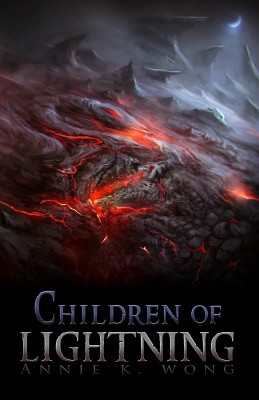 Secrets beget secrets. The curse that befell the Hollows clan has left them incapable of producing male offspring. To extend their bloodline, they have formed a covenant with the serpentine Ophidians, who give them children. In return, the Hollows must keep these monstrous creatures well fed, though the details of the procurement are so abominable that the truth is never revealed to the other clans. In their homeland of Matikki, they live like outcasts.
Secrets beget secrets. The curse that befell the Hollows clan has left them incapable of producing male offspring. To extend their bloodline, they have formed a covenant with the serpentine Ophidians, who give them children. In return, the Hollows must keep these monstrous creatures well fed, though the details of the procurement are so abominable that the truth is never revealed to the other clans. In their homeland of Matikki, they live like outcasts.
Through a series of chance discoveries, the secrets of the ancient curse unfold before a warrior named Writhren Hollow. Is her purely female clan the result of a lapse of divine providence, or are the Hollows themselves victims of an enslavement scheme?
If Writhren frees her clan from the covenant, she risks the wrath of the Ophidians and the future of her bloodline. If she keeps the truth of the curse to herself, she is a traitor to her own kind. Either way, she will suffer for what she must do.
This is not a story of redemption, but regret. This is Writhren’s story.
Goodreads: https://www.goodreads.com/book/show/23294183-children-of-lightning?ac=1
Purchase:
Amazon:http://amzn.com/B00NZPR320
B&N:http://www.barnesandnoble.com/w/children-of-lightning-annie-k-wong/1120426896?ean=2940046202953
Interview with Author Annie K. Wong
1) Tell me a little about yourself.
I grew up in Hong Kong and was almost twenty when I left for university in the U.S. Although I don’t get along easily with my mother, she has been instrumental in shaping my life and allowing me to become a writer. If not for her, I wouldn’t have received my college education and years later, immigrated to Canada where I met my current partner, Scott. It was during college that I discovered my ability as a storyteller, and in Vancouver that I had the opportunity to study film, an experience which has changed and enhanced my storytelling skills.
Currently, I work in the transportation industry by day and pursue a writing career in my spare time.
2) Tell me a little about your writing history.
I discovered my talent in storytelling in college, but I did not pursue writing as a career then because I was lazy and afraid. Writing is not for the faint of heart. The writing process can be grueling, the rate of failure very high. I was not ready for the challenge as an undergrad.
 Unbeknownst to me, this urge to write had remained dormant in me for more than a decade after I left college and reared its (ugly) head in my mid-thirties when I was older, more mature and perhaps more capable of tackling the difficulties of a writing life. Being the fighter that I am, I battled against this inner voice that beckoned me to be a writer. I did that for a year and lost.
Unbeknownst to me, this urge to write had remained dormant in me for more than a decade after I left college and reared its (ugly) head in my mid-thirties when I was older, more mature and perhaps more capable of tackling the difficulties of a writing life. Being the fighter that I am, I battled against this inner voice that beckoned me to be a writer. I did that for a year and lost.
I was reluctant at first, but once I put my fingers to the keyboard, I discovered a new me, an explorer of brand new worlds and dangerous, complex situations. I became hooked onto the adrenaline of every story twist and turn unfolding before my eyes. Yes, writing continues to be difficult, but the difficulty is what makes it so, very rewarding.
3) Your first book is called Children of Lightning. Tell me a little about it.
Children of Lightning is the prequel to a book series I have been working on since 2010. It is about Writhren Hollow, a snake-haired warrior, who while trying to save her clan from extinction ends up becoming the villain in the story.
4) How did this story come about?
Before I wrote Children of Lightning, I spent a couple years drafting the first book in a fantasy series about a young hero rising against an ancient and powerful monster who vows to destroy her family and the world. After I finished the manuscript, however, I became curious about this monster, where she came from and how she became so full of vengeance. Even though she is the villain, I found it unjust to the character to simply bring her out to be defeated. She needed her own story.
People often overlook the importance of the villain in a story, especially in the fantasy genre. Without the villain initiating the attack, there will be no reason for defense, for heroic deeds. For this reason, the villain gives birth to the hero, and a well-rounded villain is more interesting, more challenging. The more we know about a monster, the less monstrous she becomes, and yet, because of who she is, she continues to be threatening. The hero’s battle against this evil force will be more complex and in the end, more rewarding. That is why I decide to write an origin story for the villain in my book series, Writhen Hollow, the result of which is Children of Lightning.
5) Since this is a fantasy novel, you basically built a whole new world with new races and a new mythology. What was building this world like?
Complicated.  It happened in stages, beginning with the characters and their physical appearances. These “children of lightning” or lucerians as they are called, are not human, and the way they were first created necessitates a homeland filled with volcanoes. Additional geographical details were then added to advance the plot, and a name was given to this mythical land: Matikki.
It happened in stages, beginning with the characters and their physical appearances. These “children of lightning” or lucerians as they are called, are not human, and the way they were first created necessitates a homeland filled with volcanoes. Additional geographical details were then added to advance the plot, and a name was given to this mythical land: Matikki.
When the basic landscape was set, I imagined the kind of architecture they would have in Matikki. Would it make sense to have houses made of wood in a volcanic land? Could I make these houses look exotic and plausible at the same time?
Finally, since Matikki is a volcanic land where magic thrives and Writhren and her peers are not human, their culture and beliefs should be very different from ours. What colours do they associate with life and death? How do they organize themselves, govern themselves? Do they have a monarch or a warlord as a ruler? What do they use as a currency of trade? Dollar bills or magic spells? These details took a long time to take shape, the result of which has been a combination of imagination and logic.
6) Are there any themes or subplots you hope readers will pick up on?
There is a Chinese saying that states, “Succeed and become a king; fail and become a traitor” (成王敗寇). The saying refers to the ancient times when people rebelled against a ruthless, suppressive regime, which often involved assassinating the king. The rebel leader who succeeded in killing the king would be the next monarch. He who failed would be killed for treason. Two people having the same intention and making the same attempt for greatness could be defined very differently depending on the result of their efforts. The line between a hero and a villain can be very thin.
My book is an origin story of a villain. To say that Writhren Hollow is a victim of circumstances would be an over-simplification. Yes, fate might not have been kind to her, but she, like any normal person, never set out to be evil. At what point did she choose the path of darkness? How much is she responsible for her subsequent role in the story? Hopefully, readers will give Children of Lightning a try and find out.
7) What writers in the sci-fi/fantasy genre inspired you?
I have mentioned in other posts my love for Garth Nix’s The Old Kingdom series and the works of China Mieville. I also admire the world building work in epic fantasies such as A Song of Ice and Fire series.
One of the books I am currently reading is The Brief Wondrous Life of Oscar Wao by Junot Diaz. His choice for the narrator and point of view for the story are interesting. Karen Russell is another writer I have recently discovered and love. The works of these two writers are considered as more “magical realism” than strictly fantasy, but I find their stories just as imaginative, not to mention very well written.
8) What are you working on now?
I am thinking of writing a story about a contemporary of Writhren Hollow and continue the mythology from a different angle.
Author Bio
Annie K. Wong was born in Hong Kong and lives in Canada, in the west coast city of Vancouver, BC. She has a BA in Business Administration and Creative Writing from Houghton College as well as a Diploma in Film Studies from the University of British Columbia. Although she explored careers in advertising, television and office administration, the desire to write overtook her at the turn of the new millennium. In 2003 she earned a Post-Graduate Certificate in Creative Writing from Humber College and has been crafting stories ever since.
Her current project is a fantasy series, the prequel of which is Children of Lightning.
Connect with her and receive freebies and updates about her book and other upcoming projects.
Author links:
http://www.anniekwong.com/
https://www.goodreads.com/author/show/8640429.Annie_K_Wong
November 12, 2015
Be A Good Landlord
The following was originally published by the Shenzhen Daily.
Two weekends ago, I spent a couple of days helping a friend look for an apartment. She is a young professional whose company relocated from Shanghai to Shenzhen. However, our excitement over her move quickly gave way to despair after looking at over a dozen apartments over two days. Everything less than 7,000 yuan (US$1,097.6) was falling apart and located too far from any metro stations. She finally found a very small, one-bedroom apartment for 6,000 yuan. When I moved to the city two years ago, we had a comfortable two-bedroom apartment close to a metro station for 4,500 yuan.
 Shenzhen is quickly becoming known as the city with the worst landlords. I have lived in the city for only two years but am on my third landlord. The first apartment we had for 4,500 yuan, the owner sold it as soon as our contract was up, and so we had to leave. The second apartment we rented, we told the house owner that we wanted a long-term rental because we are expecting a baby. The house owner agreed and signed a two-year contract. We were only in the apartment for two months when she messaged us and told us she was selling the apartment. The new house owner keeps saying she wants us to leave so she can move into it, but she has thus far refused to give us a move-out date. This means we have now been in our apartment for over a year but haven’t been able to “settle.” We can’t completely unpack, hang pictures on the wall, or decorate the baby’s room.
Shenzhen is quickly becoming known as the city with the worst landlords. I have lived in the city for only two years but am on my third landlord. The first apartment we had for 4,500 yuan, the owner sold it as soon as our contract was up, and so we had to leave. The second apartment we rented, we told the house owner that we wanted a long-term rental because we are expecting a baby. The house owner agreed and signed a two-year contract. We were only in the apartment for two months when she messaged us and told us she was selling the apartment. The new house owner keeps saying she wants us to leave so she can move into it, but she has thus far refused to give us a move-out date. This means we have now been in our apartment for over a year but haven’t been able to “settle.” We can’t completely unpack, hang pictures on the wall, or decorate the baby’s room.
After my bad experiences with my landlords and apartment hunting with my friend, I had considered writing about this problem for the newspaper, but then I found out that one of our regular contributors had already decided to write about it. However, I was dismayed by his lack of accountability as a landlord.
In last week’s opinion piece entitled “Soaring housing prices hurt SZ,” Wu Guangqiang said that Shenzhen’s housing prices are too high, which I agree with. But then he went on to relate his experience as a landlord: “The apartment we bought in 1989 is only 64 square meters in area. Since we moved to a larger unit in 2005, my wife has been in charge of leasing the original one. The initial rent was 1,000 yuan and it gradually grew to 1,500, 2,000, and 2,500 until it had hit 4,000 by the end of July this year. All of a sudden, rent prices saw another leap in July, and the price of my old, tiny flat jumped from 4,000 to 5,000… The only thing I know for sure is that the young men who rented my apartment were forced to move out and look for something smaller and cheaper.”
 We have a saying in America, “If you aren’t part of the solution, you are part of the problem.” No one forced you, Mr. Wu, to raise the rent on the apartment and kick those tenants out. When you complain about rent in the city being too high, you as a landlord are the one who sets those prices. You are the only person responsible for your rental prices.
We have a saying in America, “If you aren’t part of the solution, you are part of the problem.” No one forced you, Mr. Wu, to raise the rent on the apartment and kick those tenants out. When you complain about rent in the city being too high, you as a landlord are the one who sets those prices. You are the only person responsible for your rental prices.
I find it interesting that Mr. Wu’s solution to this problem is for the government to get involved. He said, “Unless Shenzhen’s government does something to curb the overheating housing prices, Shenzhen will suffer, rather than benefit, from the runaway prices.” What exactly do you want the government to do? Do you really want the government to tell you how to rent out your own property? Do you want the government to tell you whom you have to rent your property to? Should the government just abolish private property? Is it so hard to be a responsible landlord that you need the government to tell you how to do it?
This is kind of like dropping garbage on the ground and then saying, “The government should really do something to stop me from littering.”
If the rental prices in Shenzhen are too high, be a better landlord and lower your rent. It is that simple.
What do you think should be done about Shenzhen’s high rent prices and bad landlords? What have some of your rental experiences in Shenzhen been like? Let me know in the comments!
November 4, 2015
November Giveaway!
Starting today, we are going to have a special giveaway every month! You never know what it might be, so be sure to check back and sign up for our mailing list.
 This month I am giving away a free copy of The Crazy Dumplings Cookbook for Kindle or Kindle app.
This month I am giving away a free copy of The Crazy Dumplings Cookbook for Kindle or Kindle app.
Dumplings. Wontons. Jiaozi. This remarkably simple food is found throughout Asia and in Chinese restaurants and kitchens around the world, but have you ever filled a dumpling wrapper with chicken? Lobster? North American Plains Bison? Hardly anyone has! The Crazy Dumplings Cookbook features over 100 recipes with some of the craziest and most delicious dumpling filling recipes you will ever see. From Chicken Taquito Dumplings to Timey-Wimey Dumplings to a dumpling for your dog, Crazy Dumplings will show you all the crazy things you can stuff into a dumpling wrapper for an easy meal or snack.
You can buy a copy here or enter the giveaway below!
a Rafflecopter giveaway










